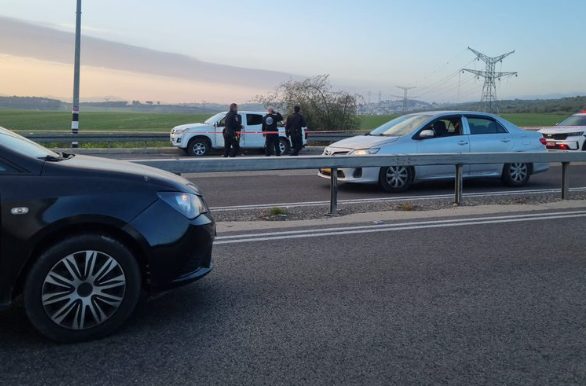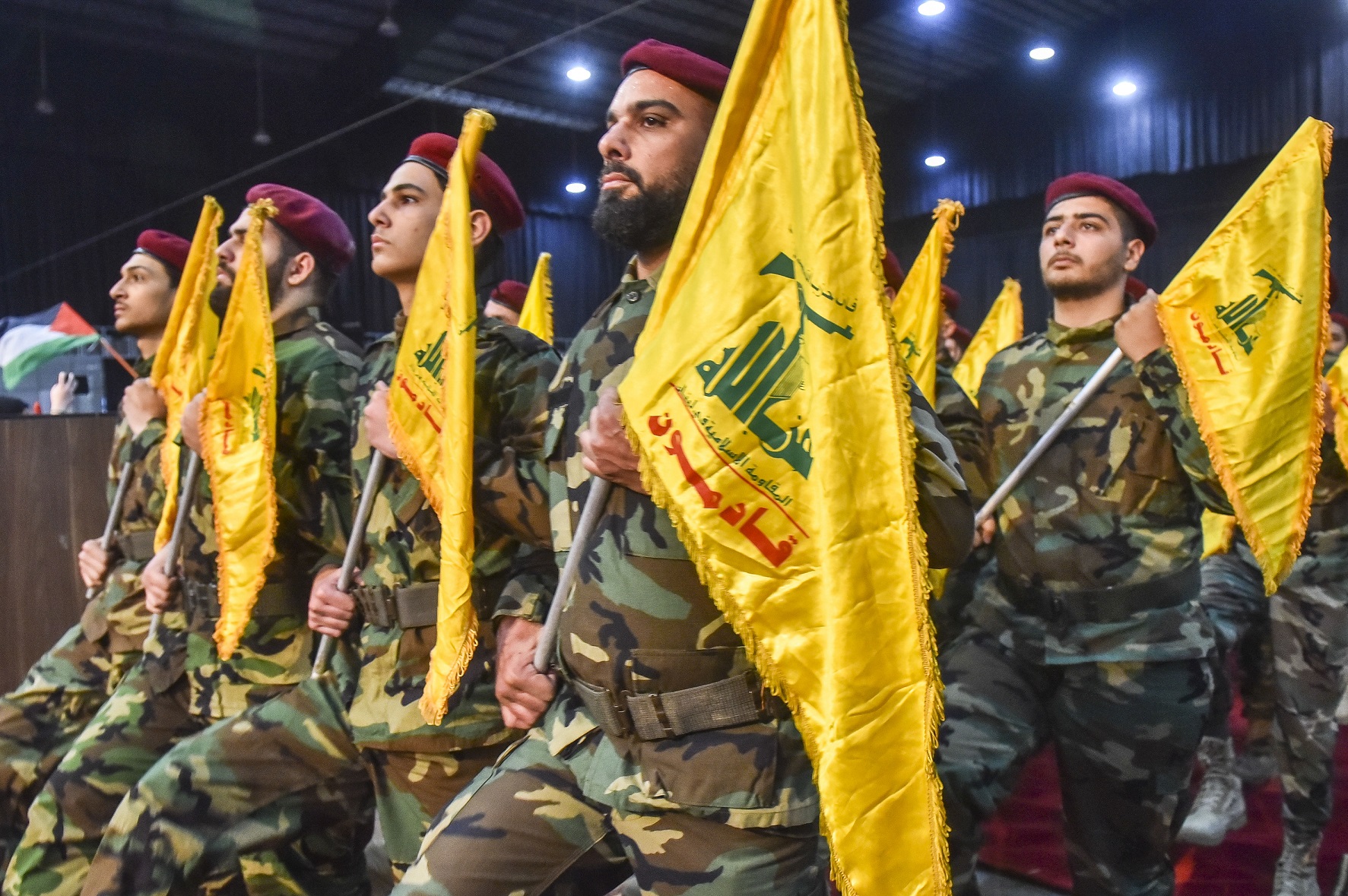Publications
INSS Insight No. 1715, May 1, 2023
Cracks in Israel’s deterrence against Hezbollah are evident following the terrorist attack at Megiddo Junction in mid-March 2023 by a Palestinian who crossed the border from Lebanon, and the rockets fired by Hamas from southern Lebanon into Israel during the month of Ramadan – compounded by the internal crisis in Israel. Hezbollah did not claim responsibility for the Megiddo attack, despite clear evidence of its involvement, and it remains unclear to what extent it was involved in the rocket fire from areas of southern Lebanon that are under its control. Deflecting responsibility onto Palestinian factions serves the interests of Hezbollah, which enjoys the best of both worlds: on the one hand, it exposes Israel’s vulnerability and allows it to argue that Israel has been deterred by Hezbollah’s military strength; on the other hand, denying direct involvement ostensibly protects it from any Israeli response. Nasrallah’s growing sense of confidence of late poses a complex challenge for Israel: how to bolster its deterrence vis-à-vis Hezbollah and Hamas in Lebanon, without escalating the situation to an all-out conflict. Even though Israel must take some kind of measure against Hezbollah, to exact a price and bolster deterrence, strategic considerations, thorough planning, and adequate preparations for any potential ramifications must figure in choice of the nature and timing of the operation.
Over the past few weeks, there has been a marked increase in operations against Israel along its northern border with Lebanon, marked by two unusual incidents. On March 13, 2023, there was a terror attack along Route 65, adjacent to Megiddo Junction, carried out by a Palestinian who had infiltrated Israel from the Lebanon border. He detonated a roadside explosive device (a Claymore mine), which seriously wounded an Israeli citizen. The terrorist, wearing an explosive vest, was located and killed while attempting to return to Lebanon. A Palestinian group by the name of Galilee Forces – Lone Wolves claimed responsibility for the attack. According to the information available, it is clear that Hezbollah was behind the planning and execution of the operation, even though the organization itself did not claim responsibility. In a speech on March 22, Hezbollah Secretary General Sheikh Hassan Nasrallah did not refer directly to the organization’s involvement in the attack, arguing that Hezbollah was not obligated to speak about details of the incident, which took Israel completely by surprise, and that Hezbollah’s silence is part of its campaign, since it is a sign of wisdom and confuses the enemy. The assumption is that the attack was inspired by Iran, which is frustrated by its inability to attack Israeli interests in Syria and elsewhere, in response to the alleged Israeli strikes against Iranian assets, and that the attacks in late March and early April against Iranian and Hezbollah targets in Syria, in which two Iranian advisers were killed and Hezbollah’s military infrastructure was damaged – attacks that were attributed to Israel – were a response to the attack at the Megiddo Junction.

The second unusual incident occurred on April 6, when a barrage of rockets was fired into Israel from southern Lebanon, as part of a multi-front Palestinian response (Jerusalem, the Gaza Strip, and Lebanon) to clashes between Muslim worshippers and Israeli security forces on the Temple Mount during Ramadan. The salvo, which the IDF and intelligence services determined was fired by Hamas operatives in Lebanon, consisted of 34 rockets – 25 were intercepted and five fell in Israeli territory. Israel had not seen an attack of this sort since the Second Lebanon War in 2006. Hezbollah officials, for their part, denied any involvement in the incident, but at the same time, expressed their unreserved support for the Palestinian struggle. Although there is no direct evidence of Hezbollah involvement, it is safe to assume that approval in principle for the operation was given during strategic coordination activities between senior Hezbollah officials and their Hamas counterparts, even if there was no concrete coordination or approval from Hezbollah for the rocket salvo. Hezbollah believes that its control over southern Lebanon gives it the right to demand that the Palestinian factions operating in Lebanon coordinate their activities with it, especially since Hezbollah knows that the actions of these Palestinian groups could embroil it in an all-out conflict with Israel.
Evidence of the close ties and routine coordination between members of the so-called axis of resistance was provided by two recent visits. The first was the visit to Beirut by Esmail Qaani, the commander of the Islamic Revolutionary Guard Corps Quds Force, just before the rocket barrage for a meeting that was also attended by Hamas leader Ismael Haniyeh and the head of Palestinian Islamic Jihad in Lebanon, Ziyad al-Nakhalah. Lebanese officials, including Prime Minister Najib Mikati, were quick to condemn the rocket fire and Lebanon's Christian community voiced criticism over the use of sovereign Lebanese territory in the service of foreign interests. Israel, for its part, treated the incident as a Palestinian event and its direct response, beyond artillery fire, was limited to airstrikes on April 7 in the Rashidieh area, from where the rockets were fired. The second event, on April 9, was a public meeting in Lebanon between Nasrallah and a Hamas delegation headed by Haniyeh. In a statement issued after the meeting, Hezbollah said that the sides discussed regional developments, events on the Temple Mount, the preparedness of the axis of resistance, and cooperation between the members of the axis.
This was not the first time Palestinian factions launched attacks against Israel from southern Lebanon: they have been active on that front since Operation Guardians of the Walls in May 2021. At that time, Palestinian factions renewed their rocket fire from that area, launching two salvoes of three rockets each time – none of which landed in Israeli territory (on May 13 they landed in the sea and on May 18 they landed in Lebanese territory). In response, the IDF limited its response to artillery fire at the source of the launches. However, in the aftermath of an additional rocket salvo from Lebanon in August 2021, which was also ascribed to Palestinian factions – and given that two of the rockets landed in Israel, threatening the lives of Israeli civilians – Israeli fighter jets attacked targets in southern Lebanon for the first time since 2013. Nasrallah, who vowed to respond to any attack inside Lebanon, sent a barrage of rockets at unpopulated areas near Shabaa Farms, in what he saw as the final word in the matter.
Unlike on previous occasions, Hezbollah has thus far refrained from responding to Israel’s aerial strike on April 7 and another classified operation against Hezbollah (reported by foreign sources but not officially confirmed by Israel) in response to the rocket fire. In his speech on April 14 – the last Friday of Ramadan and the Iranian Quds Day – Nasrallah mockingly dismissed the Israeli attacks, vehemently arguing that notwithstanding comments by Prime Minister Benjamin Netanyahu on April 10, the targets of these attacks were not Hezbollah assets in Lebanon, but banana groves. Nasrallah was at pains to reiterate the unity of the ranks within the axis of resistance, adding that violence against worshippers on the Temple Mount and against Palestinians is a red line for Hezbollah. He also highlighted what he referred to as Israel’s internal woes, coupled with a decline in US support for Israel. He warned that Israeli aggression would evoke a response that could inflame the entire region, hinted that Hezbollah would yet respond to attacks in Syria, and stressed again that any attack on Lebanese soil would be met with a “suitable response.”

It is in Hezbollah’s interests to maintain its control over the Palestinian factions who are using Lebanese territory to launch attacks against Israel or, at the very least, to coordinate such attacks, in order to avoid being dragged into escalation – as long as this serves the interests of the broader axis of resistance, which includes, beyond the Shiite axis, Hamas, and Islamic Jihad and exerts coordinated pressure on Israel. In any case, Hezbollah silence – and as such, ambiguity – regarding its involvement in Palestinian operations against Israel is convenient for the organization, and allows it to enjoy the best of both worlds: on the one hand, it can take pride in Israel’s weakness, can highlight its contribution within the axis of resistance to the Palestinian struggle and in service of Iranian interests, and claim that it has deterred Israel. On the other hand, denying direct involvement ostensibly protects it from any Israeli response – for the time being.
These operations against Israel, coupled with a series of prior incidents, have combined to erode Israel’s deterrence capabilities vis-à-vis Hezbollah, which is working tirelessly to improve the rules of the game within the framework of the deterrence equation that has evolved in the aftermath of the Second Lebanon War. Indeed, Hezbollah can boast of several accomplishments over the past two years, including its claim that its own activities have forced Israel to scale back its operations in Lebanon’s airspace; the expanded presence of Hezbollah operatives along the border with Israel in observation posts (which were constructed under the guise of Green Without Borders, a Lebanese environmental NGO); skirmishes with Israeli forces along the borders; and the self-confidence that Nasrallah has demonstrated since the maritime border agreement between Israel and Lebanon was signed in October 2022, which Nasrallah claims as a victory for Hezbollah thanks to its threats against Israel. In addition, Hezbollah – like the other members of the axis – sees the internal Israeli dispute over the constitutional crisis and the widespread protests against the Israeli government, as an expression of Israel’s inherent weakness and mistakenly interprets this as a significant blow to its military strength. The false narrative that Nasrallah has spun, especially over the past 12 months and that has come to the fore in his speeches, is, it seems, the reason for the excessive daring that he has displayed during recent events.
At the same time, the lack of even a limited military move in response by Hezbollah, coupled with the organization’s reluctance to officially confirm its involvement in attacks against Israel, proves that despite its excessive confidence, Hezbollah is still restrained and wants to avoid a head-on confrontation with Israel. Notwithstanding Nasrallah’s claim that he is ready, if necessary, for a broad conflict, Hezbollah does not want a widespread conflict with Israel, which would not only cause considerable damage to the organization itself, but to Lebanon as well – especially given the growing criticism in the country of Hezbollah.
In any case, recent events indicate that Israel’s deterrence vis-à-vis Hezbollah and its partners in the axis of resistance is eroding. Under these circumstances, Israel’s political leadership must launch a deep and thorough discussion with the security establishment in order to formulate a strategy for bolstering deterrence with Hezbollah, which is the vanguard of the broader axis, and which currently poses the greatest conventional threat to Israeli security. It appears that a military operation against Hezbollah is necessary to make it absolutely clear to the organization that it will be made to pay a heavy price for continued provocation and to prevent a situation in which terror attacks from Lebanon, including rocket fire by Hamas, become routine. Israel faces a complex challenge: how to bolster its deterrence against Hezbollah and Hamas, without escalating the situation and risking all-out war. Israel has the scope to operate, and it must select its preferred course of action and timing – and must ready itself for potential ramifications.



